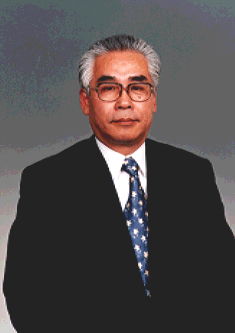


Greetings by Dean Izumi, School of Economics
@
The Senshu University School of Economics was established over 118 years ago, and is regarded as the leading School of Senshu University. It is also one of the oldest Schools of Economics in Japan.
@
The School of Economics has the following purposes:
To conduct significant research in various fields of Economics,
To build a balanced character in our students,
To create useful human resources for society,
To provide new citizens who can criticize authorities who oppress academic freedom, and
To help make Japanese society more democratic and peaceful.
@
In short, our goal is to educate our students so that they become intellectual citizens who possess an extensive knowledge of important economic issues.
@
@
Faculty, Departments and Courses
@
The School of Economics has 77 full-time faculty members in a variety of fields, including different economic specialties, liberal arts, science, physical education and foreign languages. They teach our 3,732 students (3,064 in the Economics department and 668 in the International Economics department), and about 900 students graduate every year.
Our School consists of two Departments: Economics and International Economics. The Economics Department offers
Theories of Economics I A (Marxist Economics) and Theories of Economics I B (Modern Economics and Macro Economics) as required courses. Either Theories II A (Marxist economics) or II B (Micro Economics) is also required since we consider that a solid foundation in Economic theories is extremely important. We also offer Economic History, Analytical Economics, Economic Policies, Finance, Government Finance, Economic Sociology, Labor Economics and many other courses. In addition, we offer courses related to International Economics. We offer this great variety of courses with pride because we recognize that the world is rapidly becoming increasingly complex and increasingly internationalized, and that our students' interests and needs are becoming more and more diversified.
In addition to regular Economics courses, the International Economics Department offers Current Economic Topics in English and International Communication. This last course is taught by native English speakers and is designed to improve the students' ability to use English as an international language. Other interesting courses are International Comparative Economics, Regional Studies, Current Economic Issues, and other foreign languages. The main purpose of the International Economics Department is to produce graduates who are internationally-minded. The department was established only three years ago, but it is already widely recognized as a unique department.
I would like to emphasize that the Economics Department offers basic training in Economics to freshmen and that the International Economics Department offers introductory seminars to freshmen. The early introduction of these courses help cultivate the students' identity as Economics majors and deepen their interest in studying economics. In both departments seminars begin in the sophomore year so that students can concentrate on their major field. We also recognize the rapid development of the information age, and we emphasize information processing education and expertise in use of personal computers.
Both departments accept continuing education students, international students, and returnees from abroad. We also have special continuing education students, who only take those courses which they are interested in. There are ten students in this program in 1998.
@
Exchange Programs with Overseas Universities
Senshu University has exchange programs with a number of universities overseas. Senshu students can join four-week language programs and one-year study programs in those universities. The four-week programs can be converted into Senshu credits, and the one-year study programs can be converted into Senshu economics credits.
@
@
Employment
In 1997, 96% of the School of Economics graduates found jobs and the rest went on to Senshu Graduate School or overseas schools. These jobs were in a great variety of industries:
36.8% in retail and wholesale; 16.8% in manufacturing; 12.8% in finance; 10.7% in information and research; 4.3% in education; 3.9% in transport and telecommunication; 3.2% in travel and real estate; 3.2% in agriculture, fishery, mining and construction;
3.2% in mass communication; and 6.1% in other service industries.
@
Night School
The School of Economics also has a four-year night school. Most courses offered are the same as those offered in the daytime school. The night school has a unique admission system so that daytime workers find it easy to study. It is also possible to study courses offered by other Schools.
@
@
The staff of the School of Economics warmly welcomes students who are eager to study. We hope that our students will widen their views, become enlightened, and will actualize their potential through joining our School. We are proud to be of service in creating students for the international age.
| êCåwÌy[Wb
oÏwÌy[Wb
oÏw·¥AiJjb
êC³õÌÐîb
u`àe z[y[WWb oÏwÌw¶Öb oÏwñb AEóµb Z¶ÌNÖ |